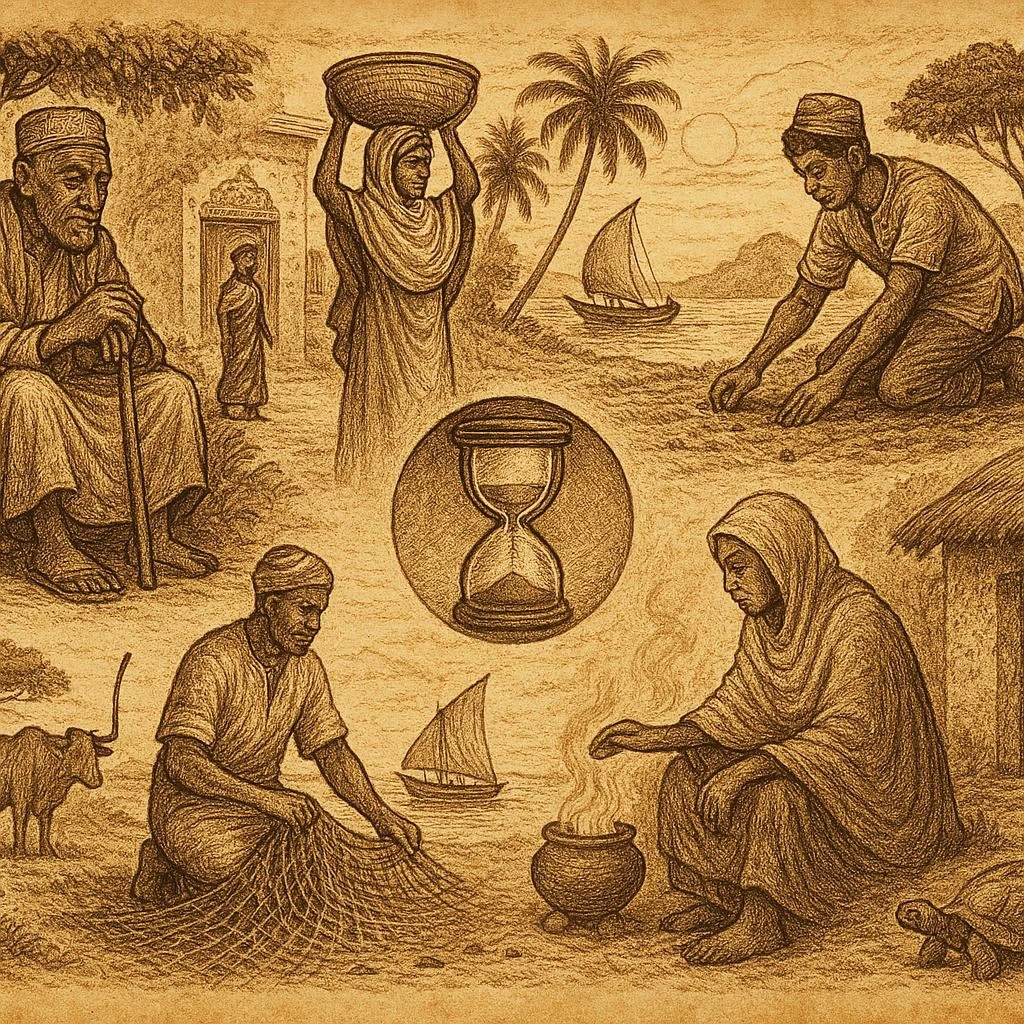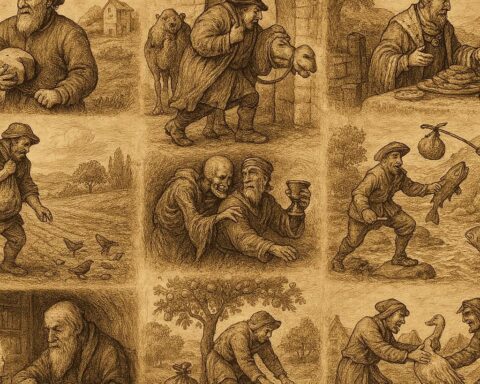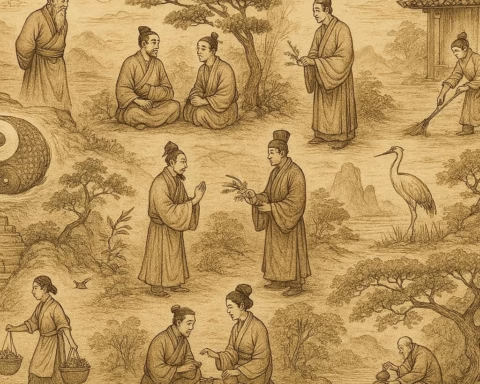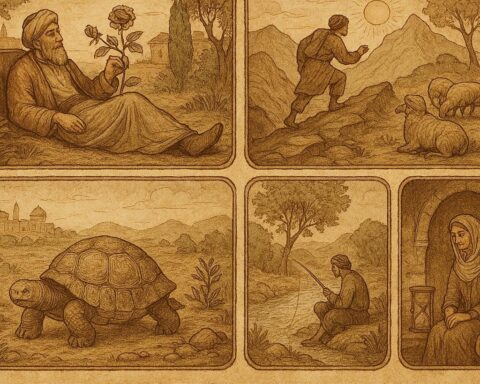Along the East African coast, where the Indian Ocean meets the warm sands of Kenya, Tanzania, and the islands of Zanzibar and Pemba, the Swahili people have for centuries woven a culture rich in poetry, storytelling, and seafaring knowledge. Proverbs, methali, are the threads binding this cultural tapestry, passing lessons about life, community, and survival from generation to generation.
The following ten Swahili proverbs illuminate three virtues prized deeply in Swahili tradition: patience, the mastery of timing, and the pursuit of wisdom.
“Haraka haraka haina baraka.”
(Haste, haste has no blessing.)
This widely known Swahili saying reminds us that rushing through tasks often invites mistakes and misfortune. In fishing villages, a hurriedly prepared net often tore, costing the catch. The lesson: take time, work carefully, and blessings will follow.
“Subira huvuta heri.”
(Patience attracts blessings.)
Patience is not passive in Swahili culture, it is an active force that draws good outcomes closer. Just as the fisherman waits for the tide to bring the shoals, so too must we wait for the right moment in life’s endeavors.
“Chema chajiuza, kibaya chajitembeza.”
(A good thing sells itself; a bad thing advertises itself.)
This proverb teaches that true value and wisdom need no boast. Along the coast, skilled dhow builders did not have to seek customers, their work spoke for itself. The wise let their actions be their testimony.
“Samaki mkunje angali mbichi.”
(Bend the fish while it is fresh.)
A lesson in timing: just as fish is easier to prepare when fresh, so too are habits and character easier to shape in youth. The Swahili have long understood that wisdom must be nurtured early.
“Chakula cha mchana hakiandaliwi asubuhi.”
(You do not prepare lunch in the morning.)
Timing is everything. Just as the tide determines when dhows set sail, there is a right season for every action. Acting too early or too late can spoil even the best intentions.
“Polepole ndiyo mwendo.”
(Slowly is the way to go.)
This classic proverb urges steady, deliberate progress. Traders along the Swahili coast knew that careful travel and measured deals led to lasting prosperity. Life, like a long caravan journey, is best taken step by step.
“Usipoziba ufa, utajenga ukuta.”
(If you do not seal the crack, you will build a wall.)
A lesson in foresight and wisdom, small problems, if left untended, grow into larger ones. A patient, watchful person addresses issues early, saving greater effort later.
“Mvumilivu hula mbivu.”
(The patient one eats ripe fruit.)
In the Swahili-speaking lands, fruit ripens slowly under the tropical sun. Those who rush eat sour fruit; those who wait enjoy the sweetness. The proverb celebrates the rewards of endurance.
“Usione vinaelea, vimeundwa.”
(Do not think things float by themselves; they were crafted.)
This saying warns against assuming success comes without effort. A dhow that glides smoothly across the waves is the product of long, careful work. Patience and wisdom are the hidden hands behind all achievement.
“Maji hufuata mkondo.”
(Water follows its course.)
An image of natural patience, water never forces its path but finds its way to the sea in time. The proverb reflects the Swahili belief in letting life’s events unfold in their rightful order.
Cultural Origins
Swahili proverbs are the distilled essence of a culture born from centuries of trade, migration, and storytelling along the East African coast. Influenced by Bantu roots, enriched by Arab, Persian, and Indian exchanges, these sayings reflect a maritime people’s deep respect for the rhythm of tides, the patience of navigation, and the wisdom of choosing the right moment.
In fishing harbors, spice markets, and family courtyards, elders have used such proverbs to teach younger generations the values necessary for survival and harmony: wait for the right wind, act with deliberation, and respect the quiet strength of time.
Knowledge Check
1. What does “Haraka haraka haina baraka” mean?
It means haste often leads to mistakes and a lack of blessings.
2. How is patience valued in Swahili culture?
It is seen as an active virtue that brings blessings and good outcomes.
3. Why is “Samaki mkunje angali mbichi” important?
It stresses shaping habits and character early in life.
4. What lesson does “Usipoziba ufa, utajenga ukuta” teach?
It warns to address small problems before they become big ones.
5. How does “Mvumilivu hula mbivu” connect to patience?
It shows that those who wait enjoy better rewards.
6. What is the meaning of “Maji hufuata mkondo”?
It means life should follow its natural course without forcing events.














